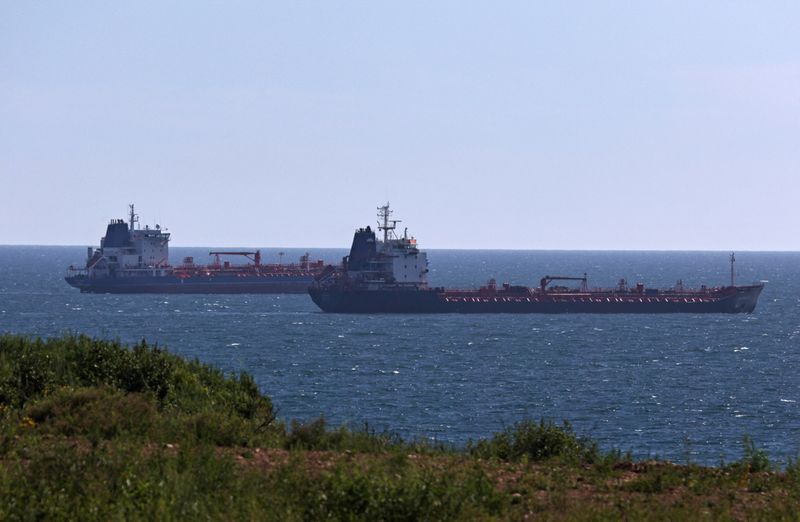(Reuters) - Russian oil imports into the European Union fell to 1.4 million barrels per day (bpd) in October from 2.5 million bpd in January, according to the International Energy Agency (IEA).
India, China and Turkey have more than made up for that drop in demand for Russian crude, ramping up their purchases by about 1.2 million bpd by this summer, the IEA said in its monthly oil market report.
Russia will need to redirect another 1.1 million bpd to Asia or other destinations by Dec. 5, when the EU's ban on Russian crude imports kicks in.
The EU's share of Russian crude oil exports fell to 31% in October from 50% before Moscow's invasion of Ukraine on Feb. 24, the IEA said.
GRAPHIC: Crude oil imports into EU - https://graphics.reuters.com/UKRAINE-CRISIS/OIL/zdvxdookavx/chart.png
ALTERNATIVE SUPPLIES
The EU has offset the decline in Russian crude imports by increasing supplies from the Middle East, West Africa, Norway, Brazil and Guyana, the IEA said.
The EU has previously said the United States and Kazakhstan could partly help to replace the approximate 1.1 million bpd of Russian oil that will be lost after Dec. 5.
Norway also plans to ramp-up output from Western Europe's largest oilfield, Johan Sverdrup, in December. The field's Phase 2 development could add some 200,000 bpd when it reaches the peak next year, its operator Equinor has said.
COMPLICATIONS
Some Russian oil will continue to flow into the EU via pipelines as the ban excludes some landlocked refineries in Eastern Europe.

Germany, the Netherlands and Poland were the top importers of Russian oil in Europe last year, but all have capacity to import seaborne crude from elsewhere.
The EU's dependence on Russia has also been underpinned by companies such as Rosneft and Lukoil, controlling some of the bloc's largest refineries. Germany, however, has taken control of the Rosneft-owned Schwedt refinery which supplies about 90% of Berlin's fuel needs, while Italy is discussing options for the Lukoil-owned ISAB refinery in Sicily.